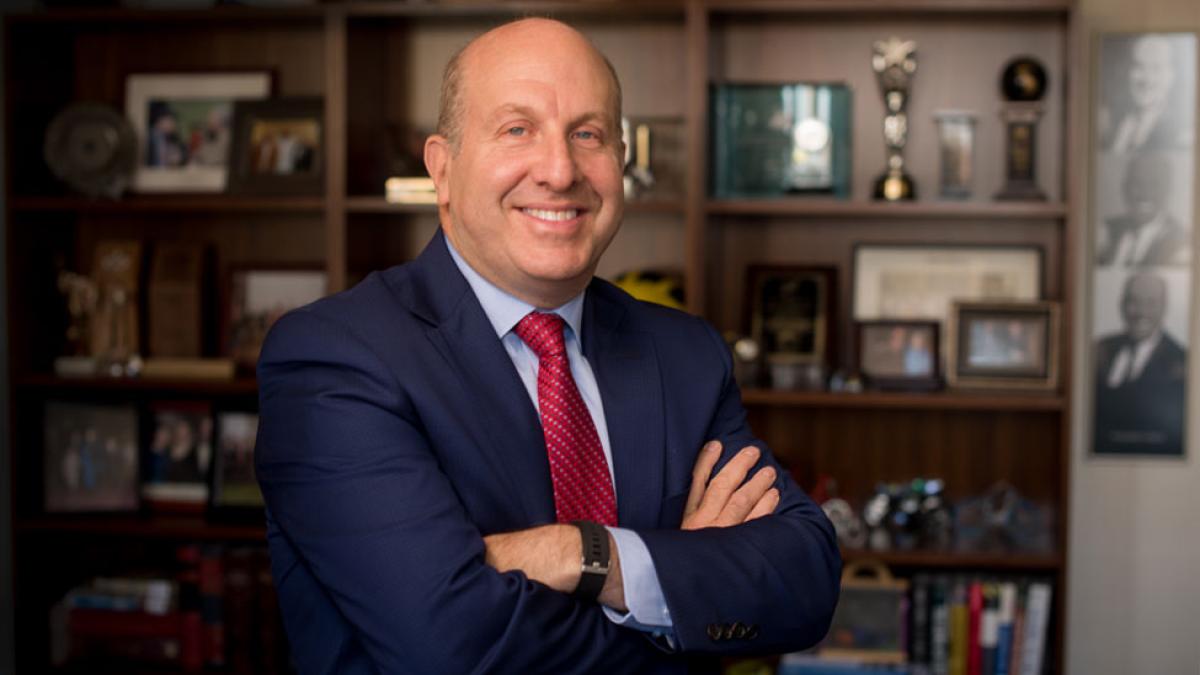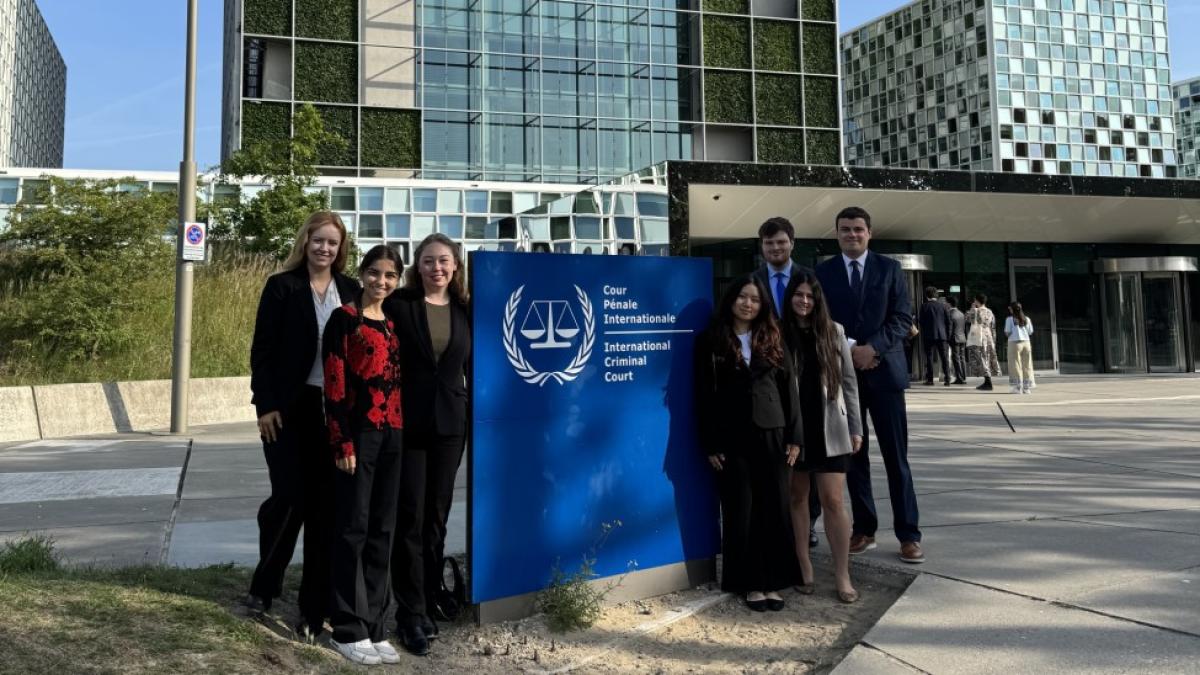Pace University President Marvin Krislov has been appointed by New York Gov. Kathy Hochul and confirmed by the New York State Senate to serve on the Board of Trustees of the New York State Higher Education Services Corporation (HESC), the state’s higher education student financial aid agency. The appointment reflects Pace University’s commitment to expanding college access and affordability for students across New York.
17 Pace Students Named United Nations Millennium Fellows

Class Represents a Record-Number for Pace
Pace was among just eight percent of universities selected to host a cohort
A record-number 17 Pace University students have been accepted into the 2022 class of the United Nations Academic Impact and Millennium Campus Network Fellowship Program, the University today announced.
In this semester-long leadership program focused on making a social impact, students convene with the cohort of fellows from their institution to lead projects that advance the UN’s Sustainable Development Goals—a list of 17 objectives focusing on areas such as social justice, sustainability, poverty, equity, education, and economic growth.
While leading projects on their own campuses and in their own communities, students in the program also collaborate with fellows at peer institutions around the world, creating a global network of students working toward a better world by addressing problems facing societies around the world.
Sue Maxam, EdD, assistant provost for special programs and retention and Pace Millennium Fellow liaison, notes that the University’s largest-ever cohort “is a testament to the ever-growing commitment of Pace students to effectuate positive change in the world as it relates to their passions and values.”
“I am incredibly proud of our 17 students who were selected for this prestigious and highly competitive leadership development program that connects them with global leaders and other like-minded students from around the world,” said Maxam. “These students are change agents and part of an impressive global network of people committed to making a difference.”
The Millennium Fellowship program set its own record this year, as 31,397 students applied for the program, hailing from more than 2,400 campuses and 140 nations worldwide. Pace was among just eight percent of universities selected to host a cohort for 2022. A graduation ceremony will be held on November 18, 2022.
Students who apply submit a proposal for a project they would like to launch on their campuses or in their communities. This year’s Pace cohort proposed ideas ranging from helping high school students from vulnerable populations gain better access to higher education, drinking water quality advocacy, to first-year peer mentoring programs for BIPOC (Black and Indigenous People of Color) students.
Previous Millennium Fellows have left lasting contributions to the University and the surrounding communities. As part of the 2021 Fellowship, Alexandra Kennedy ’22, Marisa Medici ’22, and Tasfia Rahim ’23 launched Fare Trade, an initiative aimed at combatting food insecurity on campus, which has become a permanent fixture with plans for expansion.
“Being a Millennium Fellow means I will be able to take my social impact to the next level,” said Danielle Harari ’24, Criminal Justice, who proposed a project geared toward helping supply prisons with menstrual products. “I am eager to work on this passion project, and I look forward to all the incredible people I will meet throughout the process.”
The 17 Pace students who have been selected for the 2022 cohort are:
- Maryam Aliyeva ’24, Political Science and Language, Culture, and World Trade
- Angelina Bellucci, Digital Marketing
- Mary Duffy ’24, Writing and Rhetoric
- Lucie Flagg ’25, Film and Screen Studies
- Lily Frances Flanigan ’22, Political Science
- Danielle Harari ’24, Criminal Justice
- Ryan Kai Kinningham ’26, Peace and Justice Studies
- Demi Martin ’24, Biology
- Mya McCovery ’25, Political Science
- Noëlle Frederique Meij ’26, Psychology
- Nikol Taba Montoya, International Management
- Aryaa Moudgal ’23, Political Science and Peace and Justice Studies
- Juliet O’Connor ’23, Psychology
- Lulu Okeke ’24, Global Professional Studies
- Krish Persaud ’24, Applied Psychology and Human Relations
- Camden Robertson ’24, Peace and Justice Studies and Political Science
- Natalia Rojas-Carmona ’25, Psychology
About Pace University
Since 1906, Pace University has educated thinking professionals by providing high quality education for the professions on a firm base of liberal learning amid the advantages of the New York metropolitan area. A private university, Pace has campuses in New York City and Westchester County, New York, enrolling nearly 13,000 students in bachelor’s, master’s, and doctoral programs in its Dyson College of Arts and Sciences, Lubin School of Business, College of Health Professions, School of Education, the Elisabeth Haub School of Law, and Seidenberg School of Computer Science and Information Systems.

